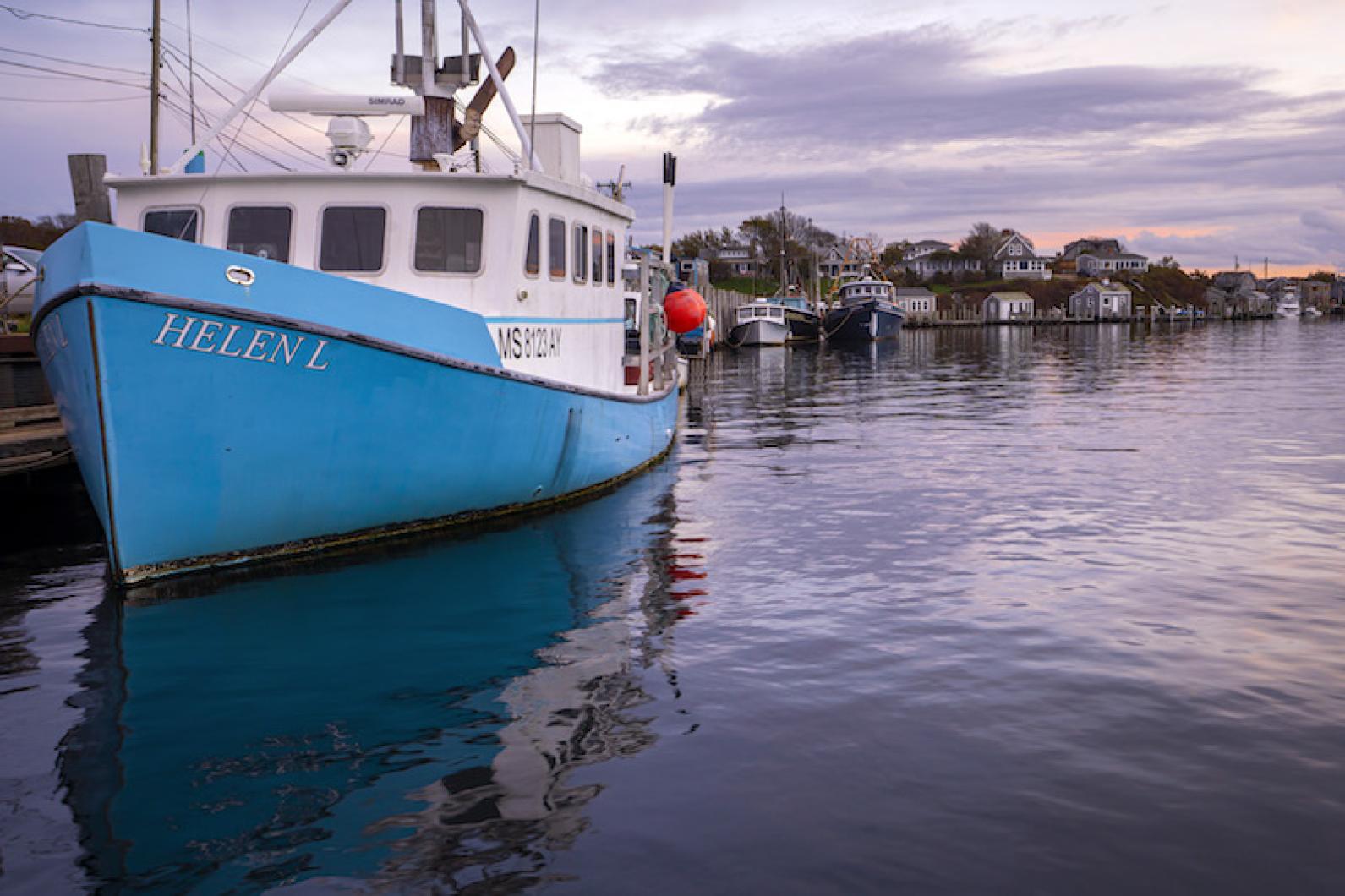Mooring fees are going up in Menemsha next summer after Chilmark selectmen voted this week to double the fees, bringing them more in line with other Island towns.
At a public hearing Tuesday, selectmen voted unanimously to raise the annual mooring permit fee from $100 to $200.
The measure was part of a series of amendments to the town’s waterway rules, regulations and fees, made at the recommendation of harbor master Ryan Rossi. The proposed changes are intended to refresh outdated language and to increase harbor revenue, Mr. Rossi said.
The changes were reviewed and approved by the harbor advisory committee prior to the meeting.
“[We] would be changing the annual mooring permit fee from $100 to $200 in order to generate more funding in the waterways management fund,” Mr. Rossi said Tuesday.
The change also will place Chilmark permit fees on a par with other Island towns, Mr. Rossi said He said Edgartown has a $200 fee, and Oak Bluffs charges the same for Lagoon Pond, while $350 is a starting fee for permits in Aquinnah. Moorings permits in Vineyard Haven are calculated according to boat length, Mr. Rossi said.
“We currently have the lowest fee for an annual mooring permit . . . [and] we would still be the lowest cost on the Island, along with Edgartown,” the harbor master said.
Moving to waterway rules and regulations, Mr. Rossi proposed a laundry list of changes, including limiting the number of docking spaces available to a single resident and instituting minimum time requirements for mooring usage, both intended to shorten wait lists for slips and moorings.
One new regulation states that anyone awaiting a slip in Menemsha Basin who ascends to the top of the list will forfeit their mooring permit to the next person on the wait list before receiving the slip. The rule will not apply to those who currently have two spaces, Mr. Rossi said.
Another says that mooring holders who do not occupy their space for more than 30 days in one year will forfeit their mooring, unless they receive permission for one yearlong grace period.
“Moorings must be used to be retained,” said Mr. Rossi.
Mr. Rossi also proposed lowering the age requirement for mooring permits to 12 to allow young boaters and fishermen more opportunity to use the harbor.
The changes were met with approval from the public, but town administrator Tim Carroll pointed out that the 30-day rule posed problems for seasonal visitors who stay in town for only a month. Mr. Rossi agreed, but selectmen urged the harbor master to keep the regulation as is and adjudicate extenuating cases on an individual basis.
“What Ryan is really trying to do is to open up the waiting lists for both slips and moorings that basically have stalled for years . . . and to make sure that the people who have slips and moorings are actually using them,” said selectman Jim Malkin.
Jeffrey Maida, president of the harbor advisory committee, requested as a member public that the town prohibit the transfer of commercial and charter slips to surviving spouses.
Selectmen voted unanimously in favor of the measures, including the adjustment to the slip transferral regulation proposed by Mr. Maida.
“I think it’s going to help generate revenue that’s needed for maintenance in the harbor, and especially after last year’s taking away money to balance our budget,” said chairman Bill Rossi.
In other business Tuesday, selectmen opened the second public hearing of the evening to set the town’s 2021 tax rate.
During the annual tax classification hearing, selectmen voted unanimously to approve a tax rate of $2.91 per $1,000 of assessed valuation at their annual tax classification hearing, a 1.78 per cent increase from last year’s rate of $2.86.
At the recommendation of the board of assessors, selectmen also voted to maintain the tax classification process at a single rate and keep the residential factor of one, meaning all property will be taxed at the same rate.
According to assistant assessor Pamela Bunker, town valuations this year came in over $3.46 billion, a 2.6 per cent increase from last year.
Of the new growth assessed this year, the town collected $97,700 in tax revenue from new construction and building improvements, representing over $34 million in value.
Ms. Bunker also reported the average assessment in FY21 at $1.4 million, according to information from an FY21 interim adjustment. The average tax bill this year is $4,400, representing an increase to the bill of $192 annually, based on the average assessment, Ms. Bunker said.
The town’s excess levy capacity is $140,364, she also said.
Heeding recommendations from the assessors, as in previous years, the selectmen also voted unanimously against three proposed tax exemptions. Selectmen voted not to adopt the open space discount, not to adopt the residential exemption and not to adopt the small commercial exemption.
Also Tuesday, selectmen voted to reappoint Joan Malkin as the selectmen’s representative to the Martha’s Vineyard Commission.






Comments (4)
Comments
Comment policy »